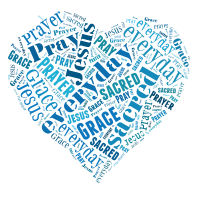 When you take off the cap of your favorite essential oil and inhale the lovely aroma, do you ever think about the plant the oils came from? I love herbs and flowers and grow some of my favorites in my own garden. I am purposeful about how I care for them. For one thing, I don’t use pesticides or herbicides. And I try to nourish them with compost or an organic fertilizer when possible. I want to be sure that what I am eating or using in a lotion (that I make for my Indianapolis aromatherapy business, AromaScents) is as healthy as possible.
When you take off the cap of your favorite essential oil and inhale the lovely aroma, do you ever think about the plant the oils came from? I love herbs and flowers and grow some of my favorites in my own garden. I am purposeful about how I care for them. For one thing, I don’t use pesticides or herbicides. And I try to nourish them with compost or an organic fertilizer when possible. I want to be sure that what I am eating or using in a lotion (that I make for my Indianapolis aromatherapy business, AromaScents) is as healthy as possible.
Four Ways Plants are Grown for Essential Oils
It’s good for us to ask the question of how the plants that our essential oils come from are cared for during the growing cycle. Usually, the company you buy your oils from should be able to tell you this. Generally, though, farmers grow these plants in one of four possible ways:
- Ethically Wild-crafted: This term means that these plants have been gathered as they were growing in the wild or in their native environment. The ethical part means that they were harvested in such a way so that the plant will continue to grow and thrive. In other words, the plant wasn’t decimated in the process of harvesting it.
- Cultivated: This term means that the plant was specifically planted, grown, and harvested for the
 purpose of distillation for essential oils.
purpose of distillation for essential oils.
- Traditional: Traditional plants are subjected to the use of pesticides during the growing process.
- Organic: This term means that plants have been grown without the use of pesticides and that the company is usually following guidelines set up by an independent agency. Not only that, but it also means that the organic farmer is usually following a protocol that protects the land, supports biodiversity, and respects the balance of nature rather than interfering with it by artificial means.
Why is this important?
It’s important so that you can make an informed choice about what type of essential oils you use. If a pesticide-free plant is important for you to use in aromatherapy, you’ll want to seek out essential oils that are organic. Here’s a bit of research on what organic means.
- Congress set forth general organic principles in the Organic Foods Production Act.
- The United States Department of Agriculture defines specific organic standards.
- The Act allows states to set organic standards that are more stringent than the federal standards.
- Read this USDA Organic Agriculture post for more information.
Keep in mind that just because an essential oil is organic does not necessarily mean it is better for aromatherapy purposes. It depends on many other factors, a major one being the quality of the distillation process. You may have organic plants but end up with an inferior product because of poor distillation techniques from an inexperienced distiller.
Ultimately, when buying essential oils, decide what factors are important to you and research the companies you are purchasing them from to see if they follow practices that you support.
 Jane VanOsdol has a Level 1 aromatherapy certification from Natural Options Aromatherapy, which follows the guidelines for certification from the National Association for Holistic Aromatherapy (NAHA). She is currently studying for a clinical certification with the East-West School for Herbal & Aromatic Studies and is developing a line of products. She is also available for workshops or one-on-one meetings in the Indianapolis area. You can contact her here. Visit (and Like) her AromaScents Facebook page for more information.
Jane VanOsdol has a Level 1 aromatherapy certification from Natural Options Aromatherapy, which follows the guidelines for certification from the National Association for Holistic Aromatherapy (NAHA). She is currently studying for a clinical certification with the East-West School for Herbal & Aromatic Studies and is developing a line of products. She is also available for workshops or one-on-one meetings in the Indianapolis area. You can contact her here. Visit (and Like) her AromaScents Facebook page for more information.
 a skinny crack of the sidewalk amidst a sea of concrete bloomed a velvety fuchsia petunia. Beauty stood out in the midst of the sparse environment.
a skinny crack of the sidewalk amidst a sea of concrete bloomed a velvety fuchsia petunia. Beauty stood out in the midst of the sparse environment. When we live in the cracks and broken places of life and bloom there for Jesus, our fragrance of him beautifies and permeates the neighborhood.
When we live in the cracks and broken places of life and bloom there for Jesus, our fragrance of him beautifies and permeates the neighborhood. 



